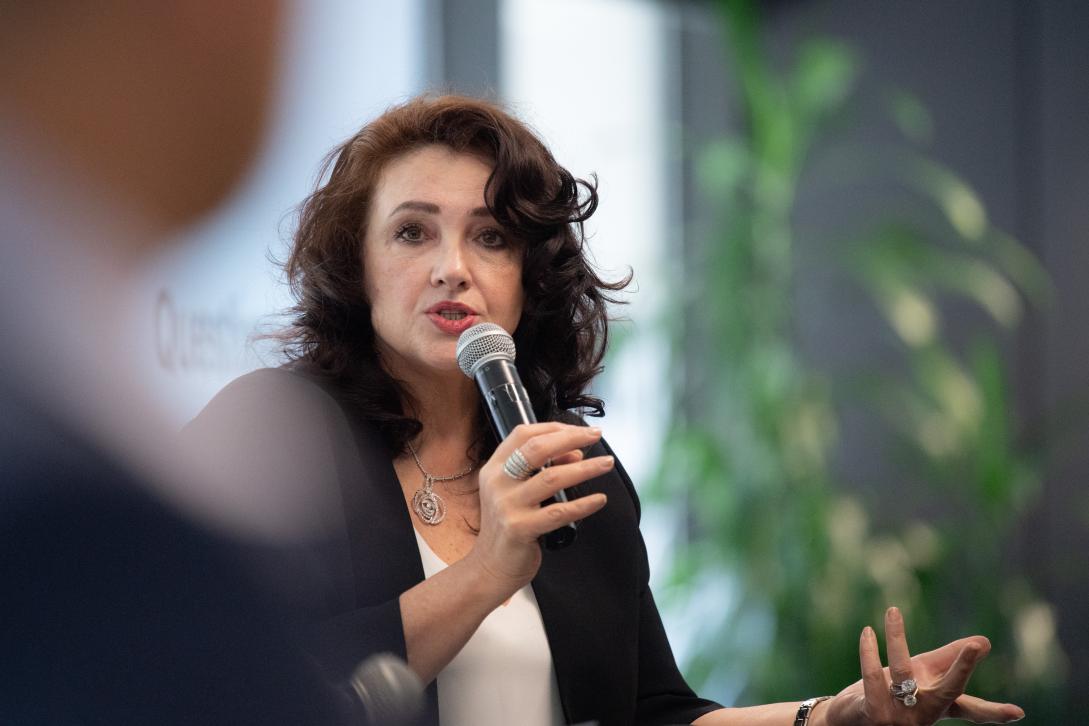Road to equality

‘All human beings are born free and equal in dignity and rights.’ Yet, in various parts of the world, the situation of lesbian, gay, bisexual, trans, non-binary, intersex and queer people remains highly precarious, as they experience serious rights violations and abuses without access to justice. Many face discrimination, harassment, persecution, incarceration, even murder or the death penalty – simply for being who they are.
Indeed, 67 UN member states criminalise homosexuality, while 14 countries criminalise trans and non-binary persons’ expression of their gender identity. Victor Madrigal-Borloz, UN sexual orientation and gender identity Independent Expert calls these laws “one of the root causes of grave and pervasive human rights violations” against LGBTIQ people.
Gladly, on the other side of the spectrum, a growing number of countries are acknowledging LGBTIQ people in law and policy to varying degrees. These range between countries that equalised the age of consent and introduced minimal anti-discrimination protections and countries with more affirming legislation recognising LGBTIQ people’s rights in terms of their personhood, family life and parenthood, as well as through protections against discrimination, hate speech and crime, and other harmful practices like intersex genital mutilation and so-called ‘conversion therapy’.
We have also seen growing attention to LGBTIQ concerns on the international front, with the setting up of bodies like the UN LGBTI Core Group, and setups like the Global Equality Caucus and the IDAHOT Forum in Europe. This is most important and must be supported to develop further.
International institutions and governments committed to LGBTIQ equality must strengthen their engagement on LGBTIQ issues in their external relations at both political and technical level. We must make specific efforts to combat violence, hatred and discrimination and ensure that LGBTIQ rights are upheld in partner countries.
In our work, we must recognise the historic discrimination inflicted on LGBTIQ people over centuries and the lasting impact as a result of stereotypes, prejudice and marginalisation that remain widespread.
Additionally, LGBTIQ-phobia may intersect with other forms of discrimination such as racism, be it in education, employment, or healthcare. Therefore, the visibility that Sydney WorldPride is providing to LGBTIQ Aboriginal and Torres Strait Islander people is welcome as multiple discrimination and intersecting exclusions often hamper minorities within the LGBTIQ community from reaping the full benefits of societal progress.
Within the European Union framework, the adoption of the first ever LGBTIQ equality strategy permitted the institution to develop coordinated action across different portfolios, and the mainstreaming of equality. Additionally, this process provided us an opportunity to develop incisive measures and to harmonise our internal and external policy.
For instance, we provide funding assistance to civil society organisations working for LGBTIQ equality within the European Union, at both the European and national levels either as core funding or for specific projects. Similarly, we will soon launch a global call for proposals of a value of 15 million Euros to strengthen the capacity of civil society organisations, in advocacy, for the equality, inclusion, respect and engagement of LGBTIQ persons in all spheres of public and private life.
This year, the European Union Fundamental Rights Agency will be conducting the 3rd Europe-wide LGBTIQ survey. We want to collect the experiences of discrimination and hate crime, as well as the views and challenges faced by LGBTIQ people in 30 countries (EU-27, Albania, North Macedonia and Serbia) and in 31 languages.
The results of this large-scale survey will help guide EU policy under our LGBTIQ Equality Strategy and national action conducted by member states and accession countries. We must continue to address discrimination and promote equality with the vision that all LGBTIQ persons wherever they live have the right to be free and equal in all spheres of life.





